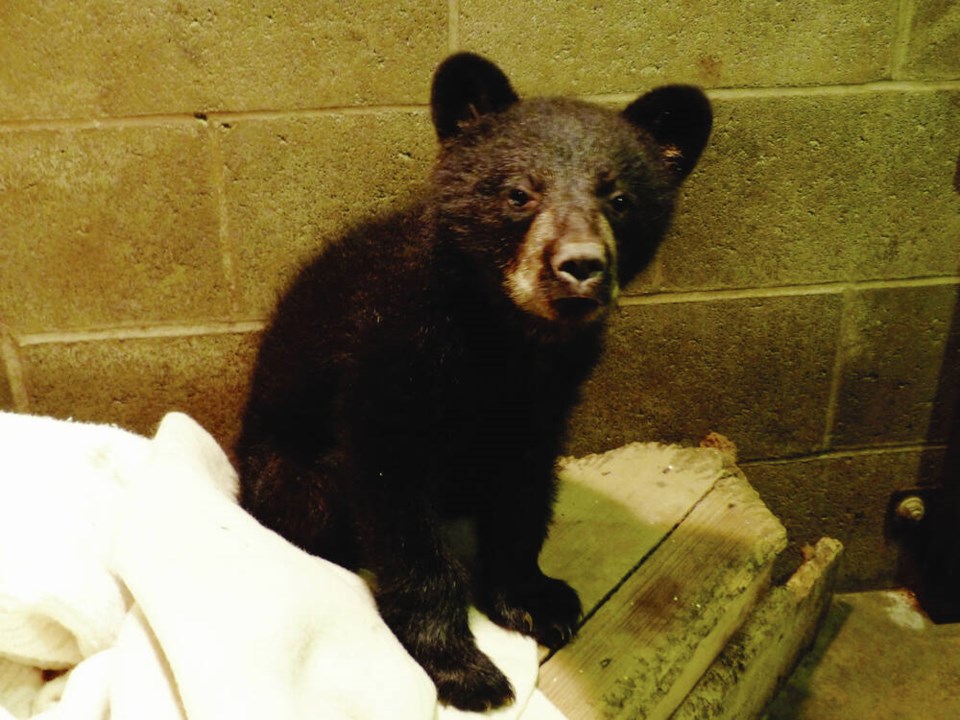Three black bear cubs orphaned on Thursday night when their mother was struck and killed by a vehicle on a Sooke roadway have climbed high into a tree.
Efforts to rescue the cubs continued on Monday, with the Conservation Officers Service and experts from the North Island Wildlife Recovery Centre monitoring the situation.
Derek Downes, a bear specialist at the wildlife recovery centre, said the cubs look healthy and did what was “instinctive” when they are in danger.
“They treed themselves and went pretty high up,” said Downes. “We’re very confident they will end up in our care, but it’s tough situation right now to get them.
“It’s not like scooping a cat out of tree … these cubs don’t see you as a rescuer. They see you as a threat … that’s natural behaviour.”
Downes said the tree is among other large conifers and in uneven terrain, which is making rescue efforts challenging.
The cubs are estimated to be between six and eight months old and rescuers have observed some feeding behaviour, indicating they are healthy.
The public is being urged to stay away from the cubs, which are already under stress. Organizations like Wild Wise Sooke are not releasing any photos or video to avoid drawing public interest.
Downes emphasized that conservation officers are doing everything they can to get the cubs into rehabilitation.
He said too many people have been calling the RAPP line about the Sooke cubs, and the calls are “clogging the lines” for others reporting wildlife in need.
Wild Wise Sooke said the black bear family was in the Sooke area likely feeding on garbage placed on the road for pickup.
A witness to the aftermath of the fatal collision told the Times Colonist that the cubs “were constantly back and fourth” between a nearby woodpile and their dead mother.
“They were hiding on their mama suckling and trying to nurse their dead mother’s body,” said the witness, who was disappointed that conservation officers didn’t begin rescue efforts that night.
While RCMP were on the scene after the 11 p.m. collision, the Conservation Officer Service didn’t begin investigating until the next morning.
The North Island Wildlife Recovery Centre in Errington already has one black bear cub in its care, a male named Kona that was found on a roadside alone and severely malnourished in the Cowichan area this fall. The small cub is recovering and gaining weight.
The centre released nine cubs over the summer in what Downes described a higher-than-average year for rehabilitating black bear cubs. The young bears usually spend a year or more in containment areas closed to the public, but can be viewed through closed-circuit video.



